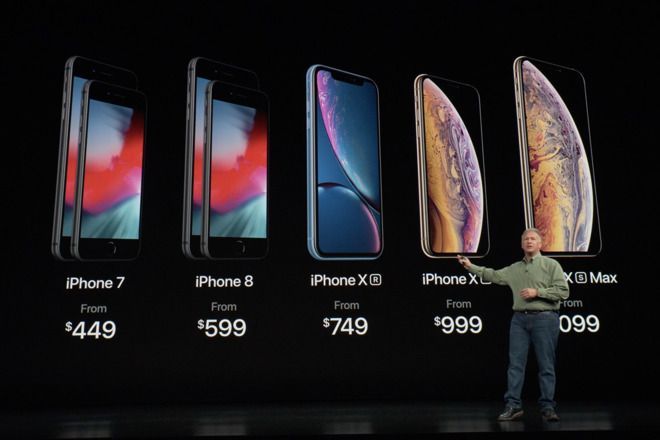
(Photo: Sohu)
Apple's stock tumbled 9.96 percent on Thursday, leading to a plunge in the US stock market and a 660-point dive by the Dow Jones Industrial Average. Blaming poor sales in China, which account for 20 percent of Apple's revenue, the company has cut its revenue forecast for the first quarter of 2019 from between $89 billion and $93 billion, to $84 billion.
Apple's complaint about China's economic slowdown and declining consumer purchasing power diverted much Western public attention from the fall of the US stock market. China's economic slowdown is believed to have dragged down more US companies and pessimistic forecasts on the outlook for the 2019 Chinese consumer market are running high.
Apple hit a market cap of $1 trillion in August becoming the world's most valuable company, an achievement that was hailed as a "miracle." But its market value now has fallen to less than $700 billion. As Apple is one of the world's most iconic high-tech companies and a symbol of US technological prowess, such a dive is obviously not a good sign for the American economy.
China's economic slowdown is a fact. But it's not the only reason for Apple's lowered sales forecast in China. With a rise in prices, iPhone sales in China dropped 1 percent in the first 11 months of 2018. Apple's main competitor, Huawei, had its smartphone sales grow 28 percent in the same period and Xiaomi, another Chinese mobile phone manufacturer, saw a rise of 9 percent.
Apple must face up to the reality that its unique competitiveness is gradually waning. As a pioneer of smartphones, the company once led the mobile phone revolution. However, it's gradually being caught up by Chinese smartphone manufacturers whose products are cheaper but as good as Apple's.
With brands such as Huawei aiming for the medium and high-end phone market, more and more iPhone users have turned to the Chinese maker's product. It's highly likely that Apple sales will continue to decline in the Chinese market unless the company secures a revolutionary breakthrough or sharply cuts prices.
Another reason for the panic over Apple's declining sales in China is that the trade war has made investors more wary of Apple's future. The White House believes the US has the upper hand in the trade war because China exports more to the US than the other way round and given the core technologies the US has mastered, China will lose more. Washington is even not afraid of decoupling from China.
But the reality is more complicated. Trade war has disrupted the supply chain. It's hard to say who will pay the bigger price. The trade war also shook expectations and confidence. Apple now has clearly become one of the sufferers of the series of disruptions.
Apple is a behemoth that will suffer if there are problems in the global market. The negative impact of the trade war has emerged gradually, leading to more pessimistic expectations. And Apple is paying the price.
Apple's stock plunge supports the forecast that this round of US economic prosperity may collapse. Market is more sensitive than politicians. Apple is a leading company with rich technological and market resources and ample means for adjustment. It's hoped it will not repeat the mistakes Samsung made in the Chinese market and could find a solution to its problems soon.


